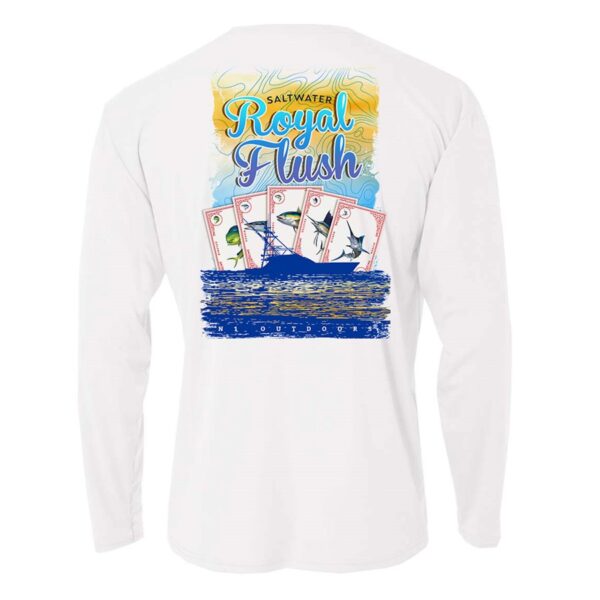The common quote goes: “The two happiest days in a boat owner’s life are the day they buy the boat and the day they sell it.”
But, boat insurance can help ease your level of concern when it comes to your investment, by ensuring that you don’t need to worry if anything goes awry with your boat.
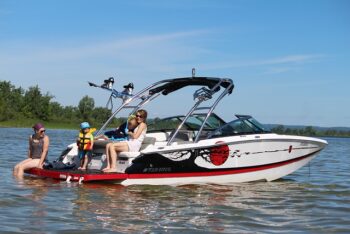
The truth is, boats can be quite an extraordinary investment and can take a toll on your wallet with the maintenance required, storage and docking fees, fuel, and other expenses that add up.
In today’s article, we’ll take a dive into the types of boat insurance and what factors go into the pricing of each specified type.
Liability Boat Insurance
Liability coverage is what insurance will protect you against financial responsibility if you are at fault for any injury or damage that happens while operating your boat. Liability insurance can cover bodily injury to others, property damage, legal defense, and environmental damage.
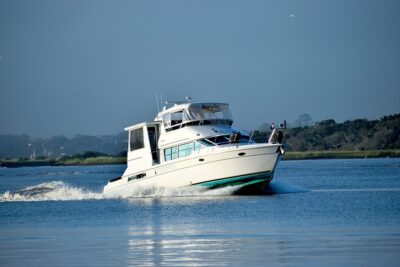
Coverage for boat liability is paramount to reduce your risk of being sued in the unfortunate event that you hit anyone, or if someone gets harmed while on your boat. If you plan on having people on your boat, even if they are friends, it’s a good idea to ensure that you have liability boat coverage, should anything unfortunate happen.
Depending on where you keep your boat, the marina may have a minimum coverage requirement to allow you to use your boat in that area. The more expensive the boat is, the higher the liability coverage is going to be. Coverage can also extend to anyone who is using your boat with your permission.
Determining Factors for Liability Boat Insurance Cost
The determining factors for the cost of the liability insurance for your boat will depend on a few factors:
- Boat size and horsepower
- Operating area (inland lakes vs. coastal waters)
- Number of operators
- Boating experience and safety certifications
- Claims history
- State requirements and marina minimums
The larger the boat, and the more people that are going to be on board, the higher the limit you’re encouraged to get. Typical coverage for liability boat insurance starts at $100,000, and many experts recommend going for $300,000 to $500,000. The reality is that accidents do happen, and unfortunately, sometimes the bill can be quite high.
Collision Boat Insurance
Collision coverage for your boat is exactly that, coverage if there is a collision.
Handling a boat can put it at risk for a collision, since you often you can’t see everything that is in the water. You could even be hit by someone while you’re out and about on the water. Damage to the boat can also occur while it’s docked, and in this case, you’re going to want coverage.
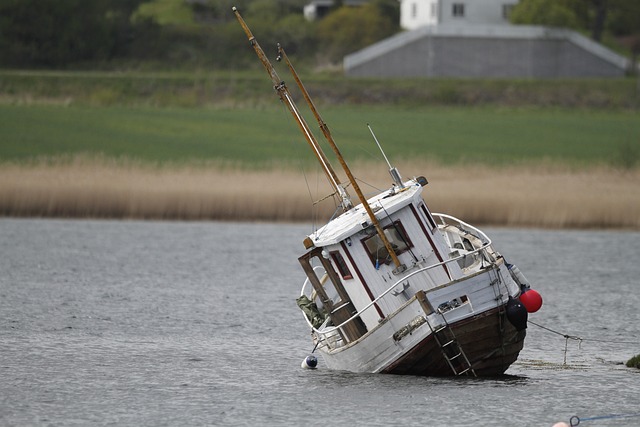
With collision insurance you’ll be covered if the hull is damaged, or if you have any engine damage or other permanent damage. You may even have salvage operations that will need to be addressed after a collision. Depending on the type of coverage you get, you’ll either fall into actual cash value (depreciated value) or the insurance company will offer a value that is agreed upon for a predetermined amount.
Deductibles for collision insurance often range from $250-$1000.
Collision coverage is often required by lenders if you are financing the boat.
Some insurance companies will offer emergency assistance and often will cover the boat while it’s being transported on a trailer. You may be able to get boat shipping discounts if you already have collision coverage, as the transport company won’t require you to pay additional money for transport insurance.
Determining Factors for Collision Insurance Cost
Below are some of the determining factors for the cost of boat collision insurance:
- Boat value and age
- Hull material and construction
- Navigation equipment installed
- Storage location and security
- Usage frequency
- Type of waters navigated
- Deductible selected
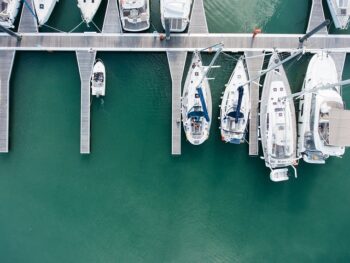
Depending on the cost of your boat, you may expect to pay around $800-$1,500 annually if the boat is worth around $100,000. Older boats will expect to pay 20-30% less, as the value of the boat drops each year. Premium boats ($300,000) can exceed $3,000 per year for collision insurance.
Depreciation of the boat does reduce the premium around every 5 years (depending on the insurance provider). Special boats like classic boats may require special coverage to cover the added cost of the added “classic” cost.
Comprehensive Boat Coverage
Comprehensive coverage for a boat is for everything else that doesn’t fall into the collision or liability insurance categories. It’s for theft, vandalism, fires, explosions, storm damages, sinking while moored, and even animal-related damage.
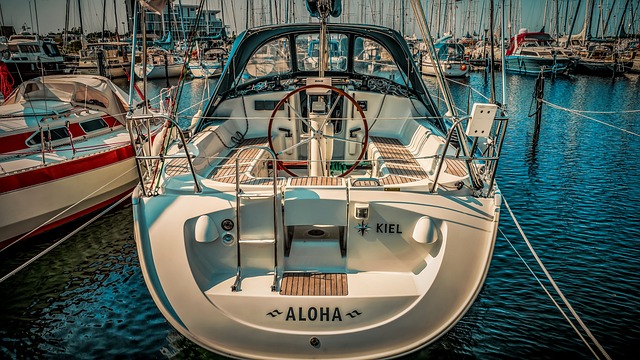
Some comprehensive coverage can even cover personal property on the boat and will cover any emergency towing or assistance required. Fuel spills, coverage during storage, and transport protection are often added to comprehensive coverage.
Boats that are used as an income source (tourist attractions, fishing boats, etc) can benefit greatly, as all the gear on board will be covered. Without comprehensive insurance, there is a risk that the value of your personal belongings will not be able to be recouped under less comprehensive insurance plans.
>> More awesome fishing shirts right HERE!
Determining Factors for Comprehensive Boat Insurance Coverage
Below are some of the factors that affect the premium cost of comprehensive boat insurance:
- Geographic location (hurricane exposure)
- Storage methods and security
- Age and condition of the boat
- Previous theft claims in the area
- Safety and security equipment
- Winter storage practices
- Local crime rates
Depending on your location, comprehensive coverage can vary significantly. For boats worth around $100,000, annual comprehensive coverage typically ranges from $600-1,200 in low-risk areas. However, if you’re in a hurricane zone like Florida or the Gulf Coast, expect to pay 40-70% more, potentially pushing premiums to $1,000-2,000 annually.
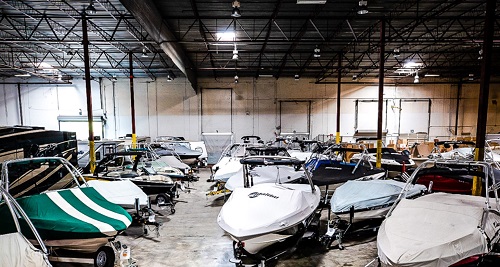
Age significantly impacts comprehensive coverage rates. Newer boats (less than 5 years) get the best rates, while boats over 10 years old might see 25-40% higher premiums due to increased risk of system failures and weather-related damage. Some insurers may even restrict coverage for boats over 20 years old without recent surveys and documented maintenance.
Conclusion
Boats are expensive and can incur high costs during the lifetime of ownership, but skimping out on insurance is NOT ideal. Take the time to investigate insurance providers, and decide what type of insurance is right for your boat usage.
Be safe on the water!



